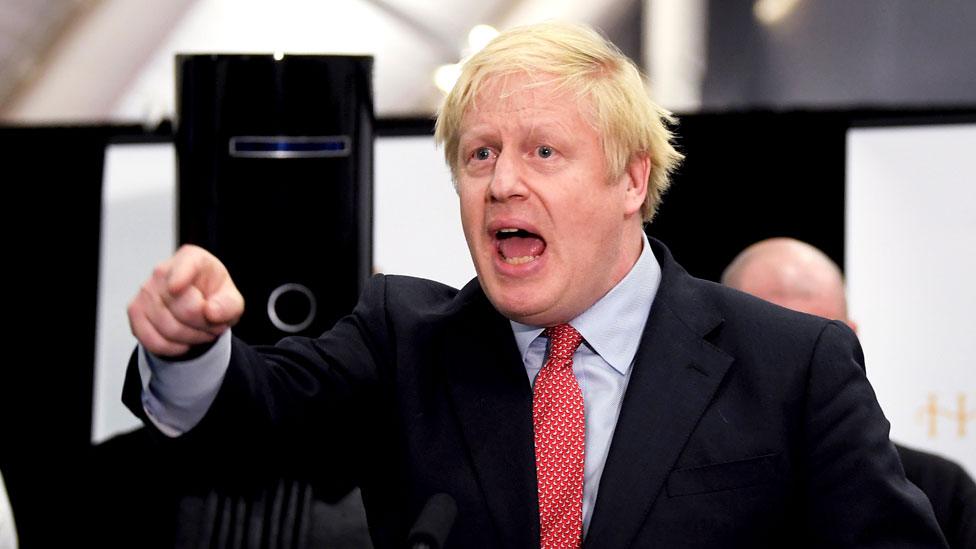General election 2019: How Labour's 'red wall' turned blue
- Published
Conservative win announced in Blyth Valley, breaking Labour's 50-year hold in the former mining constituency
Labour's "red wall" across the Midlands and the north of England - the bedrock of the party's support for generations - crumbled as the Conservatives claimed key marginal seats.
Leave-voting former mining towns like Workington, which was seen as representative of the voters parties needed to win over, backed the Tories.
Tony Blair's former constituency of Sedgefield went blue, as did West Bromwich East, vacated by former Labour deputy leader Tom Watson.
The Conservatives carved a path from Greater Manchester to Lincolnshire, the Black Country to Northumberland, as Labour strongholds fell.
Some of these seats have not had a Tory MP in decades, and in the case of Burnley it had been more than a century.
Bolsover in Derbyshire, which has been Labour since it was created in 1950 and Dennis Skinner's seat since 1970, confirmed Boris Johnson's Commons majority at just after 05:00 GMT.
Can't see the map? Click here, external

How Dennis Skinner lost his Bolsover seat
By David Pittam, BBC News
Dennis Skinner was not present at the overnight count in his Derbyshire constituency, having recently undergone hip surgery.
His absence held a sad irony, given that he has been very much an ever-present in British politics for the best part of five decades.
Like him or loathe him, his memorable public image - the famous finger, the voice raised above the Commons cacophony - struck a chord with many.
So what changed?

Things began to unravel at about 23:30 with Blyth Valley, external, a Labour seat since 1950.
Across the night and into the following morning, the Conservatives seized 54 seats from Labour, and although some of these have been marginal in recent years, many were considered to be safe by the party.
In the North East, Redcar, a seat that had never before voted in a Conservative, picked Jacob Young over Labour's Anna Turley by 3,527 votes
Meanwhile in the North West, Leigh, in Greater Manchester, turned away from Labour for the first time since 1922; one of several losses in the area
In the East Midlands the Conservatives took Bassetlaw, long seen as a Labour heartland in Nottinghamshire, with a majority of more than 14,000
Similarly, Dudley North in the West Midlands saw the second largest swing Labour to the Conservatives, securing the Tory candidate a majority of 11,533
The East of England saw only marginal seats of Ipswich and Peterborough move back into Tory hands, Ipswich with a reasonable swing away from Labour
While in the West, one marginal seat, Stroud in Gloucestershire, was lost to the Conservatives
Labour's London seats largely held their ground for Labour, with only Kensington narrowly slipping into Tory control
Promises from the new Tory MPs
Shadow justice secretary Lord Falconer said Labour had lost "our most heartland support" with long-term supporters no longer feeling connected to the party.
"The big question is what do we do to start having a conversation again, both with the people in the marginals, the floating voters that could be one or the other, but also our heartland," he said.
"If we don't do it quickly, it will be too late to put it together again."
'Nastiness and hostility'
Some blamed Brexit, others Jeremy Corbyn.
Phil Wilson, who stood for Labour in Mr Blair's old constituency of Sedgefield in County Durham, said the Labour leader went down "like a lead balloon" with voters on the doorstep.
"For Labour leadership to blame Brexit for the result is mendacious nonsense. Jeremy Corbyn's leadership was a bigger problem. To say otherwise is delusional," he tweeted.
One of Mr Corbyn's closest allies - the former Mayor of London, Ken Livingstone - said it "looked like the end" for the Labour leader, and he would probably "have to resign".
But Labour chairman Ian Lavery, who retained his Wansbeck seat in Northumberland by 814 votes, said the party had suffered a lot of "hostility", "resentment" and "nastiness" because of its position on Brexit.
"People feel let down, that's the reality of it," he told BBC Radio 4's Today programme, citing Labour's support for a second EU referendum having previously said it would accept the result of the first.
"We lost trust and we cannot as a party continue to promise one thing and do another."
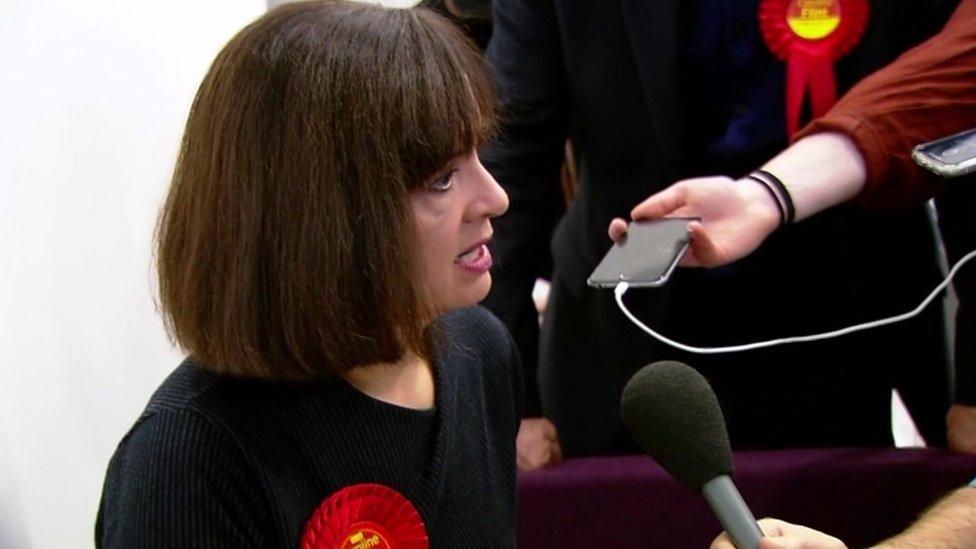
Caroline Flint said she was fighting on "two fronts"
Losing her Don Valley seat in South Yorkshire, Caroline Flint - never a fan of Mr Corbyn and Leave supporter - blamed Mr Corbyn's leadership and Remain-backing MPs for the party's performance.
The former Labour minister's former seat has existed since 1918 and had never before had a Conservative MP.
She claimed she had been "fighting on" two fronts; the first being voters not wanting to support Mr Corbyn as Prime Minister and the second of Labour "being more like a 'stop Brexit' Remain party."

The 'fantastic' seismic shift of Leigh
By Tom Mullen, BBC News
Leigh has been a fearsome Labour stronghold for nearly 100 years and even Conservative candidate James Grundy expected to "lose with dignity".
Now he's the local MP after securing a 1,965 majority, with a 12% swing to the party.

As the Conservatives took Stoke-on-Trent Central, defeated Labour candidate Gareth Snell described the loss of seats such as his as "the start of 20 years of Tory rule".
Even in the seats that Labour retained, the party's majority and vote share were severely dented.
In Halton, Cheshire, Derek Twigg won a majority of 18,975, down from 25,405 at the last election, with the Brexit Party winning more than 8% of the vote.
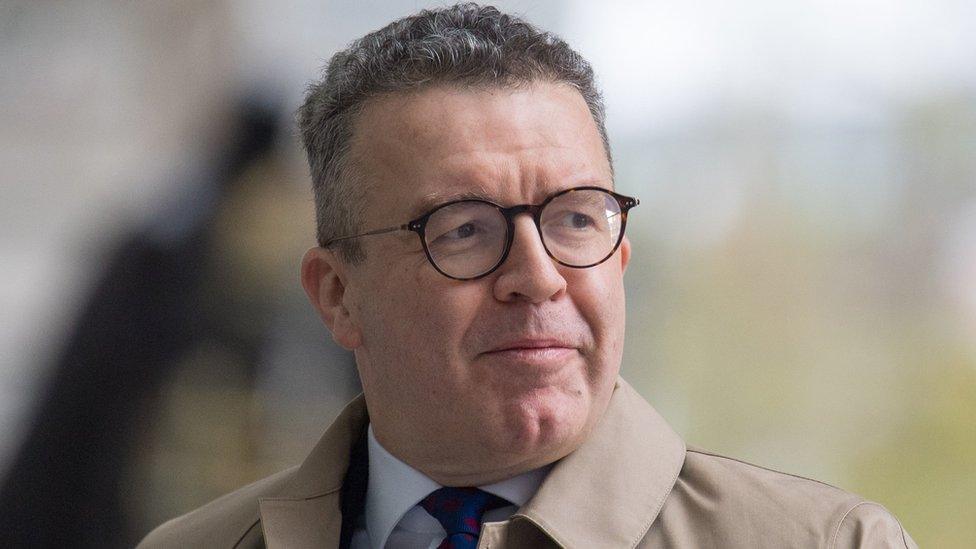
Tom Watson stood down as West Bromwich East MP ahead of the election
The red wall did not crumble on Merseyside or in London, however.
Labour saw Liverpool's first black MP, Kim Johnson, elected in Riverside, while the party also held Wirral West, despite forecasts that it would be a close-run contest.
In London, Labour secured a victory over the Tories in Putney, the seat vacated by former education secretary Justine Greening, with Fleur Anderson defeating Conservative candidate Will Sweet.
Labour retained 39 other seats in the capital but lost Kensington, which it had won by 20 votes in 2017, back to the Conservatives.
Labour's Chi Onwurah was the first MP to be declared when her Newcastle Central results were revealed at 23:28 on Thursday.
Conservative Derek Thomas was the last with his St Ives seat declared at about 14:40 on Friday after bad weather on the Isles of Scilly delayed the collection of ballot boxes.


Do you have a question about the election results? Use the form below to let us know and we could be in touch.
In some cases your question will be published, displaying your name and location as you provide it, unless you state otherwise. Your contact details will never be published. Please ensure you have read the terms and conditions.
If you are reading this page and can't see the form you will need to visit the mobile version of the BBC website to submit your question or send them via email to YourQuestions@bbc.co.uk, external. Please include your name, age and location with any question you send in.

WHO WON IN MY CONSTITUENCY? Results in full, external
LAURA KUENSSBERG: Johnson's gamble pays off
BREXIT: What happens now?
ALL YOU NEED TO KNOW: The night's key points
IN PICTURES: Binface, a baby and Boris Johnson

Related topics
- Published13 December 2019
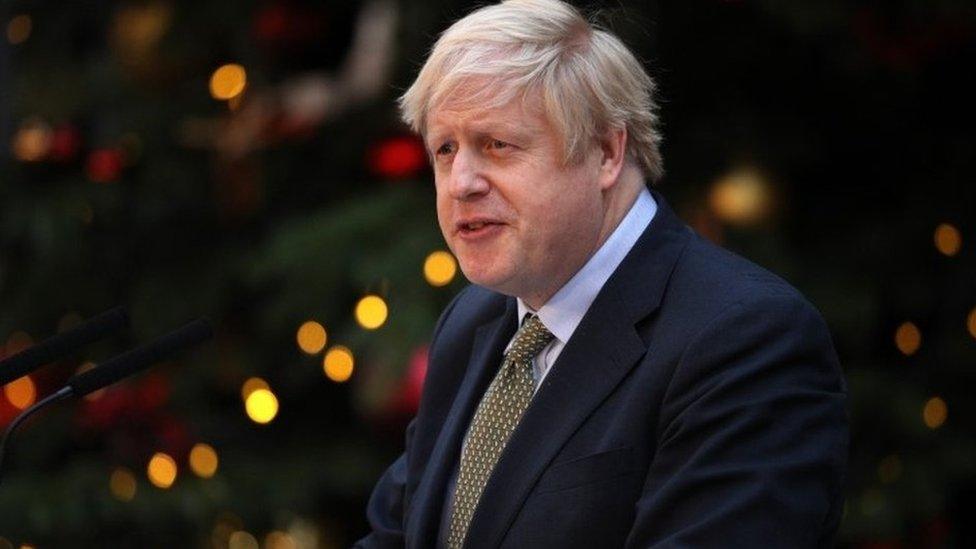
- Published13 December 2019
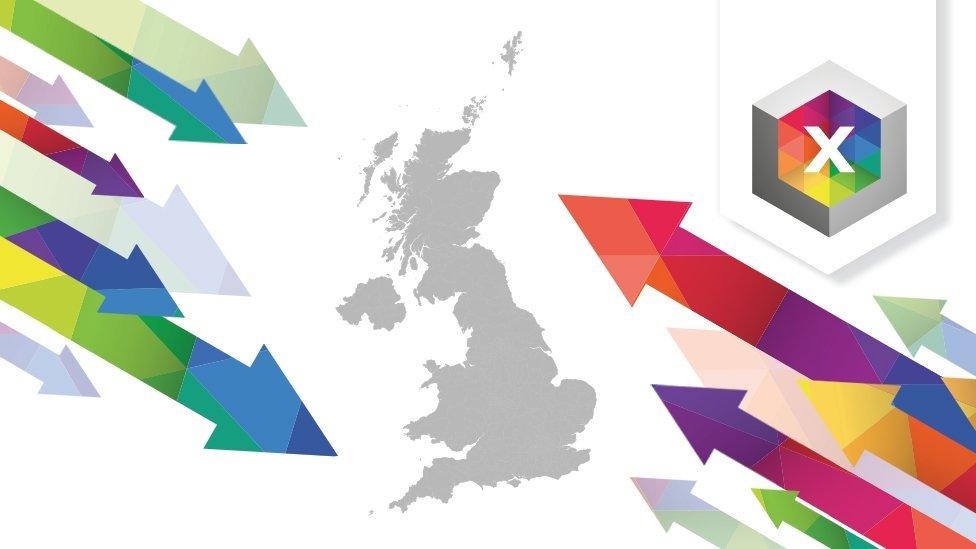
- Published13 December 2019
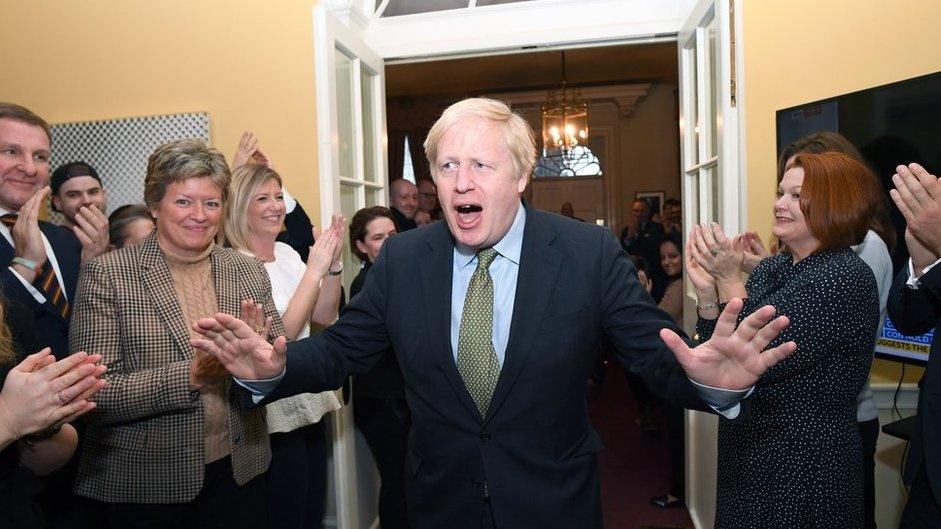
- Published13 December 2019
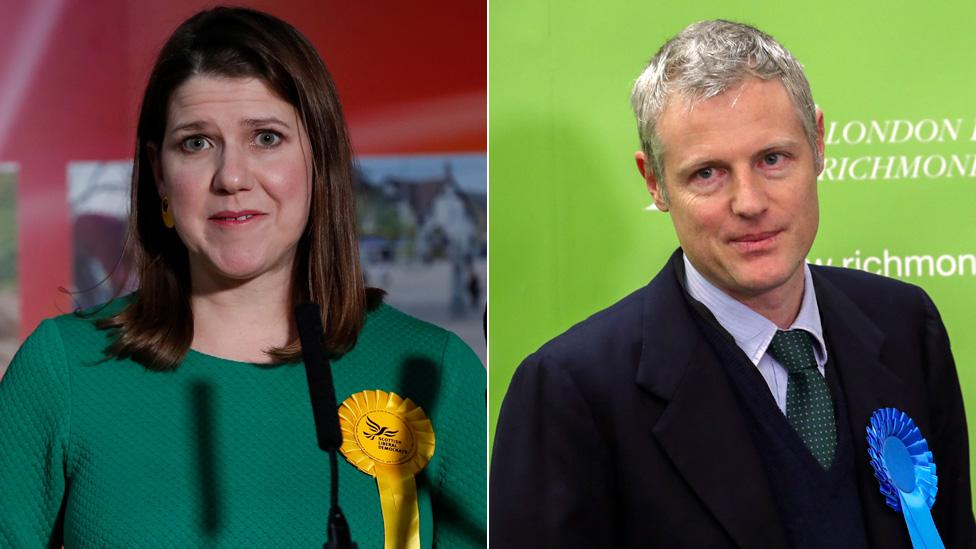
- Published13 December 2019
